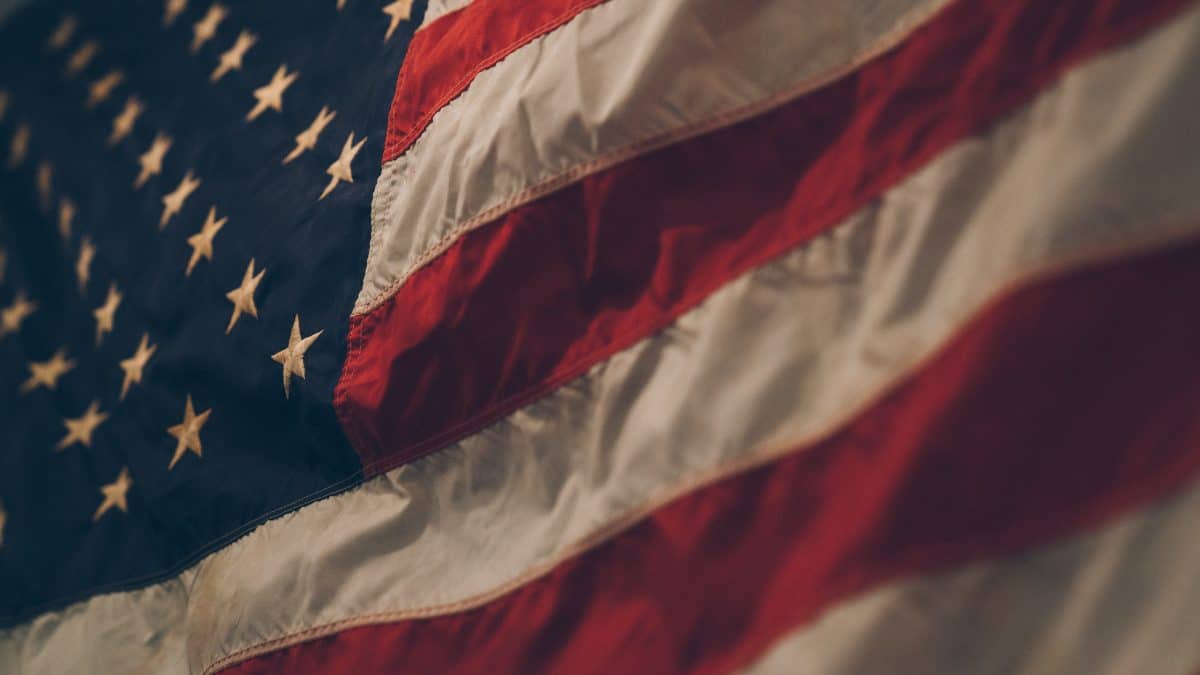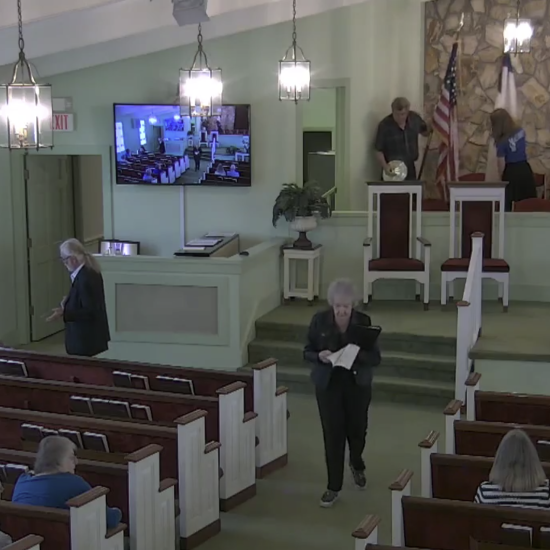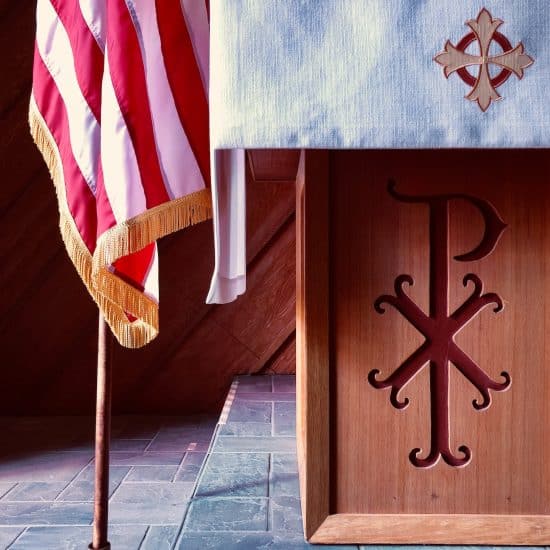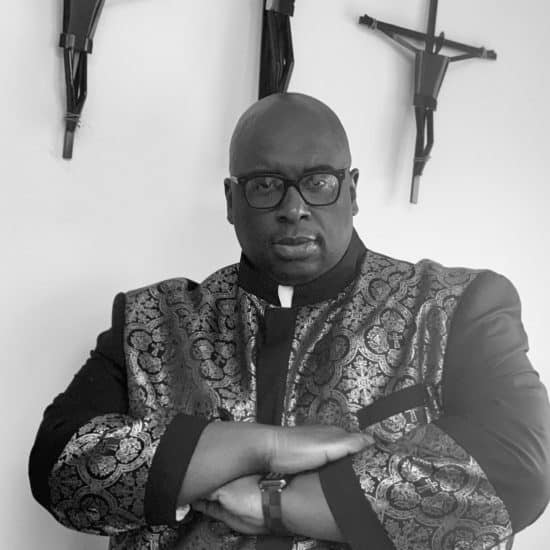
On Tuesday (June 30), Mississippi officially retired its state flag that includes the Confederate battle emblem on it. Activists for years urged them to take it down. And it finally occurred after a flurry of advocacy by the NCAA, Walmart, the Mississippi Baptist Convention, and many others. But before we celebrate too much, let’s look at our own church sanctuaries for problematic symbols.
Flying the flag of a group of people who led a treasonous revolt against your own nation should be considered problematic — especially when the cause of that war was enslaving people made in the image of God. But it’s also problematic for Christians to declare allegiance to a kingdom that competes with that of our Lord.

Brian Kaylor
Although historically churches haven’t flown national flags in their sanctuaries, it became ubiquitous in the U.S. during last century’s World Wars and Cold War. American flags now seem as essential as altars, pulpits, and baptistries. We almost act like Moses mandated the flag pole in the design of the Tabernacle!
And that can easily lead to moments like the one at a large Baptist church on Sunday where waving flags seemed to outnumber Bibles and references in the “sermon” to the president outnumbered references to Jesus. If someone unfamiliar with the church showed up, who would they think the gathered group actually worshiped?
But it’s not just that we place a national symbol in our sanctuaries while preaching and singing about how God loves the whole world. It’s that with our symbols we’ve proclaimed we’re Americans first and Christians second — just as Mississippi’s flag suggested Confederate allegiance still trumped that given to the United States.
We do this in our churches by following the U.S. Flag Code of ensuring the U.S. flag will “hold the position of superior prominence.” This means on top of a pole with other flags or in front of a line of flags being marched in somewhere. And it means, as the Code instructs, “in the position of honor at the clergyman’s or speaker’s right as he faces the audience” with “any other flag so displayed … placed on the left of the clergyman or speaker or to the right of the audience.”
So, when we put up the U.S. flag and the Christian flag in our sanctuaries, we’re not just offering a kind of two kingdoms theology. Rather, we’re saying which kingdom we really follow, and which we find subservient or secondary at best. Symbols matter, which is why Mississippi is changing its flag. And the theology we’re preaching with our symbols should worry us.
Switching the order of the flags — in violation of the U.S. Flag Code — would be a healthy start. But even that doesn’t go far enough.
We cannot really serve both our divine Kingdom and our national kingdom. Jesus warned us we can’t serve two masters. As he suggests, we can only fully serve one. They are not “separate but equal.” One always trumps the other.
We can only pledge true allegiance to one kingdom. The word “allegiance” conjures an era we in the U.S. generally don’t understand. The word came to English from the Anglo-French term legaunce, which described the loyalty a vassal or servant owed to their lord (or liege). When you pledge allegiance, you are submitting to a master or lord. You’re saying that lord — be it a person, a god, a nation, an ideology, or whatever — gets to decide what you believe and how you live.
If Jesus is your Lord, it means you’ll say no to other would-be lords. That’s where martyrs come into our faith history. They’re the ones who submitted to their Lord when asked by another “lord” to follow.

(Samuel Branch)
This isn’t to suggest I’m not patriotic. I’m grateful to be an American. But I’m a Christian first, which means I must not pledge full allegiance to the Babylon in which I live. As Tony Campolo says, America may be the best Babylon on the face of the Earth, but it’s still Babylon. Thus, we’re called to be the salt and light to this Babylon instead of allowing it to control us.
I’ve joked with a couple pastors whose churches haven’t resumed in-person services that now could be the best time to remove the U.S. flag from their sanctuaries because people won’t come back to worship in the sanctuary for weeks or even months. No one will even notice for quite some time!
But on a more serious note, it may actually be a great time to remove the flag as an acknowledgment that this land isn’t the Kingdom. The inequalities exposed by the pandemic and more videos of unarmed Black men killed in the streets should lead us to view ourselves as “foreigners and strangers” in our own land as we’re “longing for a better country — a heavenly one,” as the author of Hebrews 11 wrote of the faithful from the past.
If we really want to change the nation in which we live for the better, perhaps we first must surrender all to a higher set of values. Perhaps we first must devote our lives to the advancement of the one Kingdom that will not fall. Perhaps we first must shed any idols that demand superior prominence in our lives.





